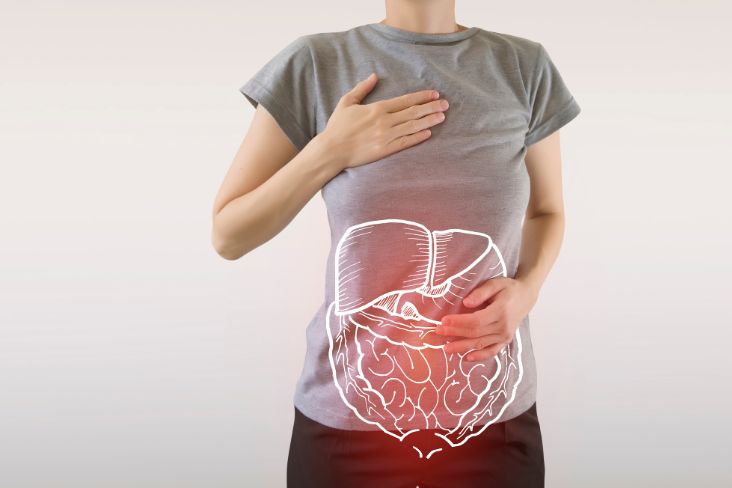Stress refers to the natural human reaction in our bodies of worry and tension in response to difficult events and scenarios in our lives. Stress can affect the physical, emotional, mental, and intellectual responses and reactions to situations.
Stress often takes up a lot of head space and may even interfere with bodily functions. For example, stress and the digestive system are interrelated, so the severe effects of stress may take a toll on the human body’s digestive system.
What are the symptoms of stress?
- Changes in your mood, more towards sadness and anger
- Tendency to overthink and have endless thoughts
- Feeling depressed and uninterested
- Messed-up sleep schedules
- Weakened immune system
- Body aches and pain
- Poor digestion
- High blood pressure
- Unexpected weight gain or loss
- Changes in menstrual cycle
- Worsening health conditions
How are stress and the digestive system interrelated?
Your digestive system is sometimes known as your second brain so when your body shows active symptoms of stress, the digestive system is called to alter its functionality. When stress is active, the digestive system shuts down as it slows down contractions in the digestive muscles.
When marginal or on-and-off stress occurs, the digestive system tends to recover and bounce back, but when stress is felt in copious amounts, the body has a harder time recovering.
Recurring or constant signs of stress can have a major impact on the body’s recovery. This affects the stream of digestion and may lead to more chronic indigestion. Basically, the digestive system is unable to perform without an eased mind.
How do people stress?
72% of Australians’ stress impacts their physical well-being, while 64% have experienced impacts on mental health.
There are 4 main ways people tend to stress. They are:
- Physical stress: This is the most apparent form of stress one can feel; it may be experienced in the form of headaches, pains, and lower immunity. Digestive system aches and pains will fall under this method of stress.
- Mental stress: This is the second most common tendency for stress; it occurs when certain issues or events take up space in your memory, resulting in a lack of concentration and a tendency to overthink, space out, and blank out.
- Behavioural stress: This is when there is a change in your behaviour; it causes you to alter your eating habits, lifestyle, and social decisions.
- Emotional stress: This is when stress affects your emotions and how you respond to certain situations; it is likely to cause mood swings and emotional sensitivity.
What are the types of stress?
Stress is not measurable with tests and one can not be diagnosed with stress, simply because it is subjective to each individual. Only the person experiencing it can determine whether they are stressed and its severity. A doctor consulting you will try to understand your stressors and situation and how it is affecting your life by asking you certain questions.
One can feel 3 types of stress and they vary according to the time period for which they feel stressed and its frequency.
- Acute stress: Short-lasting and brief
- Chronic stress: Sustained for a long period of time
- Episodic acute stress: Segmented stress over a period of time
How do you treat stress?
Stress is not easy to treat because it has to come from within. Data has shown that 15% of Australians aged 16-85 years have experienced high levels of psychological unease.
Your doctor may recommend the following to treat stress:
Relax
Establish a routine for you to unwind and do things you have an interest in—this can calm your nerves and tension. Relaxation is important because it keeps your heart rate healthier, reduces muscle tension, improves brain functionality and memory, and helps you curb anxiety and obesity.
Exercise regularly
Physical activity is a great way to relieve stress and the rush of doing physical activity tends to stimulate the brain to release endorphins. This is a good way to balance your sleep schedule as well.
Meditate
Meditation is a well-known method to help relieve any symptoms stemming from the relationship between stress and the digestive system. Mindful meditation can soothe your stressed digestive system and can relax your nerves and mind.
Maintain a daily journal
Keeping track of your life by journaling what you do, eat, feel, your symptoms, and the frequency of such symptoms can lead to insights, show your progress, and help your doctor understand how you can cope, what you did to overcome your breakthroughs, and help you process difficult emotions.
Eat stress-relieving foods
There are several foods that can possibly reduce anxiety including greens, seafood, nuts and seeds, fibre and calcium-rich foods. Also, tea, avocados, eggs, and lots of water help. Keep in mind that there are some foods and drinks that could worsen your anxiety and its symptoms, such as artificial sweeteners, caffeine, high-fat and high-sugar foods, refined carbohydrates, and sodas.
Try therapy
Therapy and talking about what is stressing you can help reduce the plight of bottling up your emotions and letting them take up space in your brain.
Consult a doctor if you believe the relationship between stress and the digestive system is leading to your digestive problems
Stress is a part of life and everyone is likely to face its consequences once in their life. However, when symptoms of stress appear as digestive problems or any other body aches or pains, it can be difficult to manage your stress. If this occurs, it would be best to consult a doctor or visit a clinic specialising in gastroenterology for specialist consulting and treatment.

